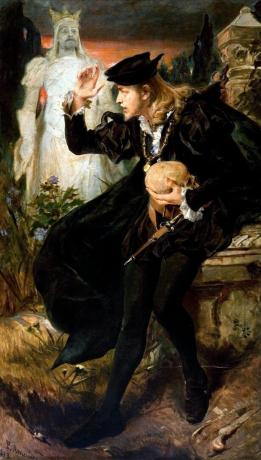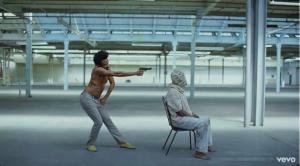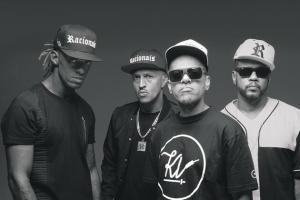To be or not to be, that is the question: analysis and meaning of the monologue of Hamlet (Shakespeare)
“To be or not to be, that is the question” (in English, to be, or not to be, that is the question) is the first sentence of the soliloquy or monologue of the character Hamlet from the play Hamlet, prince of Denmark, written around 1603 by the English playwright William Shakespeare (1564-1616).
This phrase represents the essential question of human experience, troubled by the tensions that arise. produced between will and reality, in such a way that life and death become options to to consider.
The phrase, which has become a universal reference in literature and dramatic art, invites us to ask ourselves: what is the deep meaning that it hides? What makes this phrase, and the monologue in which it is inserted, such an important speech? How can we interpret "to be or not to be, that is the question"?
Monologue To be or not to be, that is the question (Hamlet)
To be or not to be, that is the question.
What is more worthy of encouragement,
suffer the piercing shots of unjust fortune,
or to oppose the arms to this torrent of calamities,
and end them with daring resistance?
To die is to sleep. No more?
And for a dream, shall we say, the afflictions are over
and the pains without number,
heritage of our weak nature ...
This is a term that we should eagerly request.
To die is to sleep... And maybe dream
Yes, and see here the great obstacle,
because considering what dreams
may occur in the silence of the grave,
when we have abandoned this mortal spoil,
It is a very powerful reason to stop.
This is the consideration that makes our unhappiness so long.
Who, if this were not, would endure the slowness of the courts,
the insolence of the employees,
the outrages that peacefully receives
the merit of the most unworthy men,
the anguish of an underpaid love,
the injuries and damages of age,
the violence of tyrants,
the contempt of the proud?
When the one who suffers,
he could procure his stillness with just a dagger.
Who could tolerate so much oppression, sweating,
moaning under the weight of a troublesome life
if it weren't for the fear that there is something beyond Death
(that unknown country from whose limits no walker returns)
embarrasses us in doubts
and makes us suffer the evils that surround us;
rather than go looking for others that we are not sure of?
This foresight makes us all cowards,
thus the natural tincture of courage is weakened
with the pale varnishes of prudence,
the most important companies
for this sole consideration they change their way,
they are not executed and are reduced to vain designs.
But... The beautiful Ophelia! Funny girl,
I hope that my defects will not be forgotten in your prayers.Hamlet: Act III, Scene 1.
William Shakespeare
Analysis of the monologue
The monologue that begins with the phrase "To be or not to be, that's the question" is located in the first scene of the third act of Hamlet: prince of Denmark and it is a consequence of the internal conflict that the character goes through in the face of the fatality of the events and the doubts that assail him.
Dramatic-scenic context

Prince Hamlet, son of the late King of Denmark and his wife Gertrude, receives a visit from the ghost of his father, who alerts him that he has been murdered by Claudius, the king's brother. The ghost demands that Hamlet avenge his death by murdering Claudio. As if that wasn't enough, just two months after the assassination, Claudio has married Queen Gertrude, which is unacceptable to the young prince.
Doubts, however, seize Hamlet's thought:Perhaps he has truly seen the ghost of his father or has it been the fruit of his imagination? If true, what to do then? ¿He will avenge his father and turn himself into a murderer? Will it be more worthy to cause his own death rather than kill, or will killing be more worthy than dying?
The prince faces a terrible dilemma that runs through the entire work: what is the meaning and purpose of living enduring such tribulations of fortune? What is the meaning of life when man is debased? It is there that Hamlet delivers the famous monologue.
The cultural context of the time
Hamlet's famous monologue and, in particular, the phrase "To be or not to be, that's the question", express the meaning dilemmatic of human existence, concerns about life, death, infinity, tradition and reason own of the 16th century sensibility, halfway between the self-confidence of rebirth and the horror vacui of the baroque.
Juan Manuel Rodríguez says, in an introductory study to the work, that:
Hamlet is a 16th century prince, who lives in estrangement and alienation due to the brutal shock in the face of adverse circumstances and his humanistic ideas (...). Hamlet supposes that before a prince he must be, above all, a man, a friend. These new values are contradicted by the circumstance you live in. The ghost demands revenge, but revenge and intrigue are but a return to tradition, a return to an eye for an eye and a tooth for a tooth.
With his question, Hamlet makes room in the theater for the essential humanistic drama that was discovered in the time of Shakespeare: the human being is more than the role to which he has been "destined" by the threads of the story. The human being can deliberate on his destiny. Does Hamlet really do it or is he caught in doubt?
The question is not only ontological but ethical, that is why revenge is delayed until the last moment. In reality, Hamlet always wavers between two deep drives: the desire for revenge and the need for self-control. Otherwise, the question would not exist. What Hamlet does not dare to decide rationally, he assails as an inevitable twist in history.
Tradition and modernity, reason and madness, passion and conscience are some of the issues that are sneaked into this Shakespearean monologue. In the midst of all these polarities, "To be or not to be, that's the question" embodies a pivotal issue: self-doubt it is a sign of the birth of the self-conscious individual.
Hamlet: the existential doubt of human consciousness
To be or not to be, to be or not to be, is the fundamental question of human experience that, when values and reality conflict, makes the reality resembles a jelly-like and unbreathable vapor, and that the person perceives himself as a tiny particle, devoid of direction and purpose.
It is doubt and indecision that has been called to the stage. Doubt and indecision appear at some point in universal human life, only to be suspended for brief moments before the scrutiny of conscience.
Faced with the terrible possibility of revenge, death itself seems a better fate than life. For Hamlet death seems like a dream; life, nightmare. The monologue progresses: he sits conscience on the dock. Conscience looks like the justification of cowardice in the face of the only way out that seems worthy: to die rather than kill; eternal sleep, before meaningless suffering.
Is life what we live? Is there something else behind the door of the Grim Reaper? That doubt, that hypothesis that questions the possible fate of the soul when it passes through death, acts like a nail that sets a fugitive veil to the wood.
If that's the way things are, we don't just build our destiny in this world, but in the next. The consciousness of worse luck when crossing the threshold of death, stops the one who finds his own life despicable.
Is conscience the ruse of cowards or is suicide the true cowardice? And if after death you only expect greater suffering, what use would it be to provoke it? The existential doubt, the emotional tribulation paralyzes the character.
It is in the face of these questions that the human being wonders about who he is and what he means to be. Identity and existence are debated, they seek to reconfigure, redefine themselves, find meaning in the course of events.
Hamlet Monologue by Mel Gibson
We share here the monologue of Hamlet played by Mel Gibson in the film Hamlet, directed by Franco Zefirelli in 1990.
References
Rodríguez, Juan Manuel: Introductory study. On Hamlet, prince of Denmark / Romeo and Juliet. Antares Collection. Ecuador: Librea. s / f.
If you liked this article, you may also be interested in:
- Hamlet by William Shakespeare
- William Shakespeare
- Romeo and Juliet by William Shakespeare



